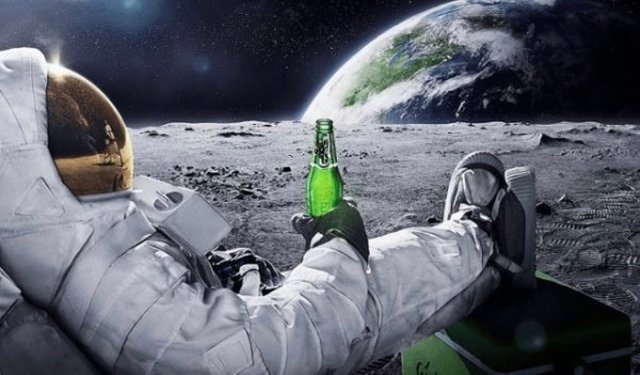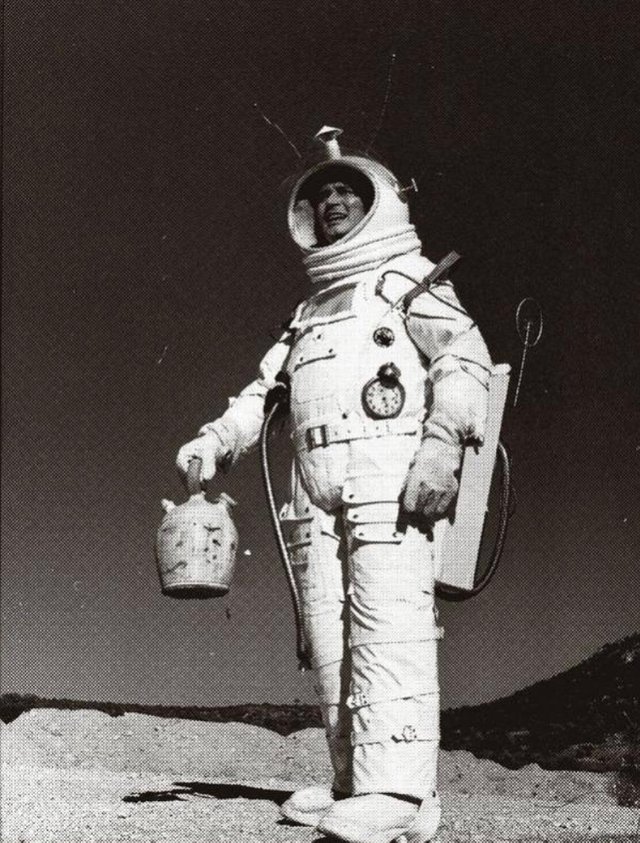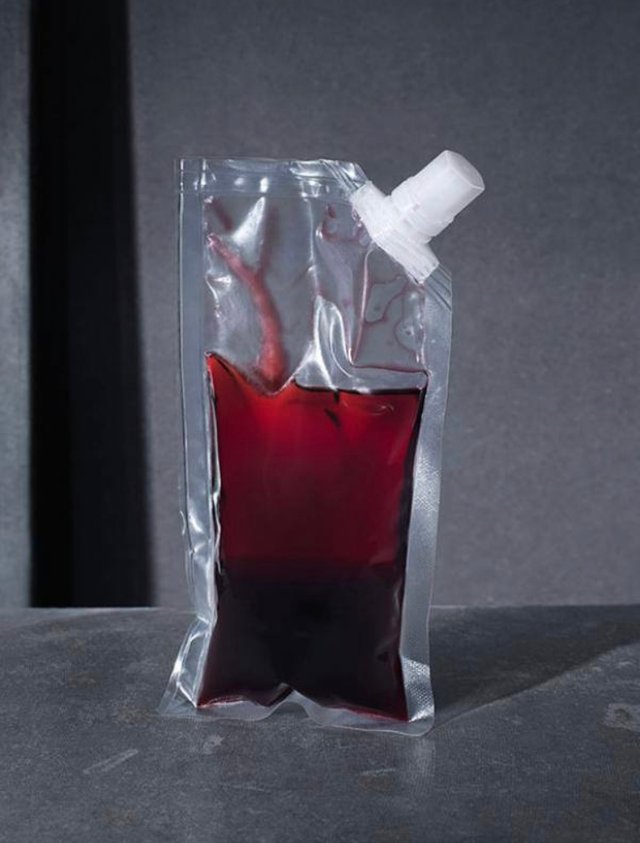From Russian Cognac to Yankee Dry Law: A Short History of Alcohol in Space

Although those who go develop a really exciting work, the outer space has to be a very boring place: there are few people and leisure options are scarce. You can take reading or practice sports, yes, but where will be those meetings with friends, at home or at the bar, for a few drinks? What about those big bottles of adolescence? OK, they can not be played on a large scale on space stations, basically because they do not fit all. But do not panic: alcohol is present in such a lonely life. And it has been for several decades. Of course, right now, as an exception and with very strict rules. It is more profitable to drink only water ...
Already the second man who stepped on the moon, Buzz Aldrin, brought wine. But not to honor the Rioja wineries (or, in their case, the Californian wineries): Aldrin brought wine blessed by his church, the Presbyterian, to receive communion on the moon. Apparently, the intention of NASA at first was to make a ceremony of public communion (probably believe that a kind of lunar mass would be the event of the century). However, then it was decided to leave it in a private act: the astronaut took bread and wine and read a passage from the Gospels.
For a long time, this particular Mass was kept secret, as there had been protests by atheists for a similar act: the reading of Genesis on a space voyage. One of the atheists, Madalyn Murray O'Hair (recognized activist and founder of American Atheists) came to sue the space agency, as it believed that violated the constitutional separation between Church and State. Therefore, it was normal that no one wanted to risk making public the communion of Aldrin, much less to retransmit it on the radio. Interestingly, each July, coinciding with the arrival of Aldrin and Neil Armstrong to the Moon, the Presbyterian Church celebrates a lunar communion ceremony.

Meanwhile, on the other side of the iron curtain, the Russians had their drinking recommendations beyond the stratosphere. Soviet doctors suggested to the cosmonauts to take cognac to keep their immune system in shape. Just like when they tell you to take a little carajillo to warm you up. In the MIR, the old Russian space station, there were ginseng liquors for exceptional occasions. In 1997, when a collision with another ship almost caused an emergency evacuation, and once the crew managed to solve it, the cosmonauts decided to open the cupboard where the drink was. With the authorization of the Ministry of Health, eye.

The public opinion learned that this mystery water would go to meet Alf, E.T. and company and the news did not sit well with the Yankees. The controversy was such that NASA decided to prohibit their astronauts from consuming any type of alcoholic beverage, even if they were on the International Space Station.
There is only one exception to this rule: Americans can drink alcohol if it is part of some scientific investigation. Yes, alcohol is also present in those games and, in fact, a Japanese distillery sent its product there to know how it would affect zero gravity. Meanwhile, a project from the University of Colorado compared beers fermented in space with others on Earth; his conclusion was that in the distance the beer has more alcohol than here.
What the future will bring:
So to commune with wine and drink a glass of cognac we have passed a dry law with scientific exceptions. But could this situation change in the future? Probably, but it will have to be decided by the Americans, who are very much theirs for those things. Although at the moment that is a lucubration, there are some things that we would know safe if they happen.

For example, if this dry law were repealed, beer should be an exception. In addition to fermenting with more alcohol, as we have already mentioned, the bubbles would not rise with zero gravity. What does this mean? That the foam would not rise, and to know what it would have in the glass. To avoid this, there are 'startups' that are working towards space tourism: Vostok is designing a beer suitable for outdoor consumption, with fewer bubbles.
In any case, it seems that the most advisable thing would be to drink wine or space liquors, because beer could also produce gases (it is a carbonated beverage), and belching in space is something, apparently, quite difficult: the gases are mixed with the liquid in the ingraviez and, therefore it is impossible to handle them. It would cost as much as driving a madman in space.
Cognac, wine, sherry, beer ... The history of alcohol in space has many protagonists, but at the moment of truth very few came to satisfy the astronauts in the distance of a good bar. And it seems that there is still room for someone to squeal with a beer and a tapa. In addition, will the maxim of "if you drink, do not drive" prevail here?